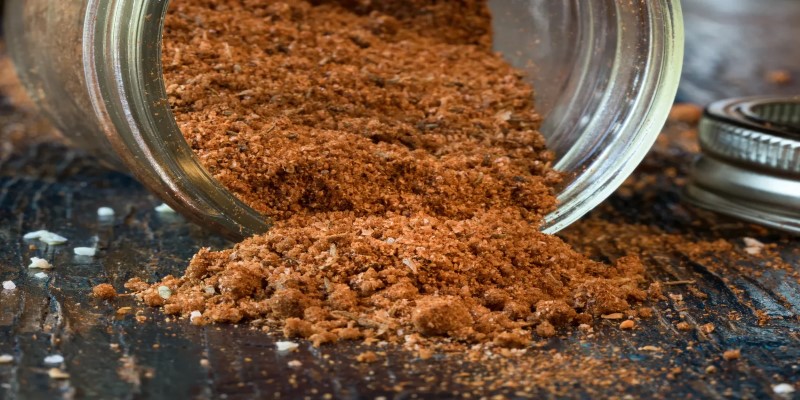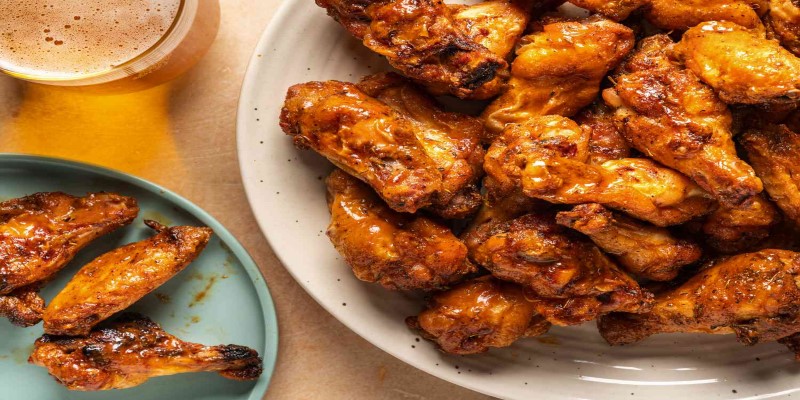Are you looking to elevate your meat dishes? Whether you're grilling, roasting, or pan-searing, the right rub can completely transform the flavour of your meats, making them more aromatic, tender, and mouthwatering.
But what exactly is a rub, and how can you use it to enhance your next meat dish? If you've ever wondered how professional chefs seem to get that perfect balance of spice, sweetness, and smokiness in their meats, it's often thanks to a simple yet powerful rub. In this article, we'll break down how to create the perfect rub, apply it, and make it work for any meat.

A rub is a blend of herbs, spices, and sometimes sugar or salt applied to the surface of meat before cooking. The goal is to add layers of flavor, improve texture, and enhance the meat's natural taste. Rubs are simple to make at home and can be tailored to your taste preferences. Plus, they're a great way to experiment with different flavour profiles without relying on pre-made marinades or sauces.
You might think, "Why should I bother with a rub when I can just marinate or sauce my meat?" While marinades and sauces have merits, rubs are more direct in their flavour delivery. They create a flavorful crust or outer layer that's both aromatic and visually appealing. Rubs work faster than marinating because they don't require time to soak in.
Unlike marinades, rubs won’t make your meat soggy or diluted. Instead, they seal in the natural juices, helping to create a crisp, flavorful outer layer that contrasts beautifully with the tender meat inside. So, what’s the secret to a perfect rub? Let’s dive in.
The beauty of rubs lies in their flexibility. You can make a rub that suits your taste or matches the type of meat you’re preparing. But every great rub starts with a base. Here are some basic components that every rub should include:
It is essential for drawing out flavours and enhancing the natural taste of meat. It helps balance the sweetness and heat in a rub.
Brown sugar or white sugar can help caramelize the meat's surface, creating a nice crispy crust and adding sweetness.
Paprika is a must for its smoky flavour and is a common ingredient in many rubs. It's excellent for giving meats a deep, smoky taste without being overpowering.
These pantry staples add a savoury, umami flavour that complements most meats.
Whether black, white or even chilli pepper, pepper adds heat and a bit of a bite to your rub.
From this basic foundation, you can get creative with other spices and herbs, depending on the flavour profile you're aiming for.
Now that you know the basic ingredients, it’s time to explore some popular rub variations that work with different types of meat:
Classic BBQ Rub for Pork and Ribs
When it comes to pork, especially ribs, a classic BBQ rub is the way to go. This rub typically combines brown sugar, smoked paprika, garlic powder, onion powder, black pepper, and a pinch of cayenne pepper for a bit of heat. The sugar caramelizes as the meat cooks, creating a delicious, sticky crust packed with flavour.
Recipe Idea:
• 2 tbsp brown sugar
• 1 tbsp smoked paprika
• 1 tbsp garlic powder
• 1 tbsp onion powder
• 1 tsp black pepper
• 1/2 tsp cayenne pepper (optional)
• 1/2 tsp salt
A Cajun rub is perfect for a spicy, zesty kick. Cajun seasoning uses bold flavours like cayenne pepper, garlic, paprika, and thyme to bring out the best in chicken and seafood. It's especially great for grilled chicken or shrimp but can also add a punch to fish fillets.

Recipe Idea:
• 1 tbsp paprika
• 1 tsp cayenne pepper
• 1 tsp garlic powder
• 1/2 tsp onion powder
• 1 tsp dried thyme
• 1/2 tsp salt
Lamb is naturally rich and flavorful, so a simple herb and lemon rub enhances its taste without overpowering it. Fresh herbs like rosemary, thyme, and parsley, combined with the zest of lemon, create a vibrant, fresh rub that pairs perfectly with grilled or roasted lamb.
Recipe Idea:
• 1 tbsp dried rosemary
• 1 tbsp dried thyme
• 1 tbsp lemon zest
• 1 tsp garlic powder
• 1 tsp salt
• 1/2 tsp black pepper
Beef can take on a variety of flavours, but a sweet and spicy rub is a favourite for steaks, brisket, or burgers. Combining brown sugar with chilli powder, cumin, and a hint of cinnamon creates an excellent balance of sweet, smoky, and spicy flavours that perfectly complement the rich, beefy taste.
Recipe Idea:
• 2 tbsp brown sugar
• 1 tbsp chilli powder
• 1 tsp cumin
• 1/2 tsp cinnamon
• 1/2 tsp black pepper
• 1/2 tsp salt
Once you’ve mixed your rub, it’s time to apply it to the meat. Here are some tips on how to do it effectively:
Before applying your rub, ensure your meat is dry. This helps the rub adhere better and creates a crispy crust once cooked.
Don't be shy with the rub. Use your hands to gently rub the seasoning all over the surface of the meat, ensuring it's evenly coated. If you're working with significant cuts, like a whole roast or ribs, ensure you get in every nook and cranny.
While you can use the rub immediately, letting the meat rest for about 15 to 30 minutes (or even longer for more significant cuts) helps the flavours penetrate. Rubs work faster than marinades, so even a short resting time will do wonders.
Once the meat is coated, cook it according to your desired method. The rub will form a beautiful crust and bring out the best flavours in the meat.
With these easy rub recipes and tips, you can elevate any meat dish from ordinary to extraordinary. Whether making a juicy steak, flavorful chicken, or tender pork, a well-crafted rub can create mouthwatering results every time.
Experiment with different combinations of spices, adjust according to your taste and enjoy a new level of flavour in your favourite meat dishes. The possibilities are endless, and you don't need to be a professional chef to make your meals shine with the power of a good rub.